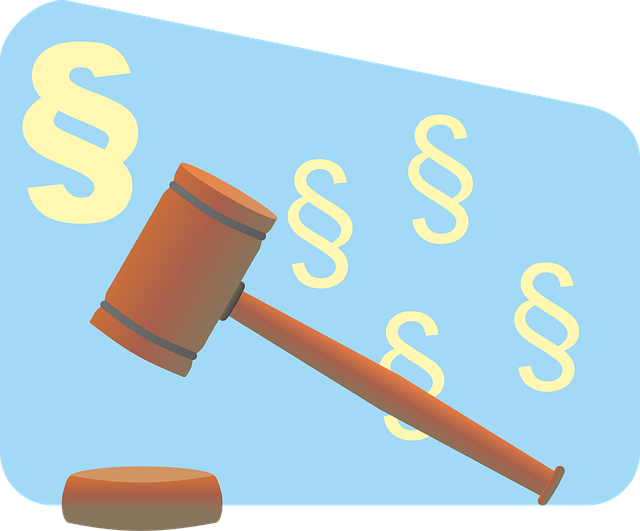In today's digital era, tech companies face complex challenges under antitrust laws, aiming to maintain fair competition. Effective strategies include robust legal defenses, transparency, and proactive risk management. RF Finance Law Firms specialize in developing tailored defenses or resolutions for tech cases, scrutinizing mergers & acquisitions. Tech firms should engage experienced counsel for white-collar defense, focusing on mitigating risks and achieving favorable outcomes. With rapid innovation cycles, rigorous analysis of market power & consumer impact is key to successful antitrust litigation strategies. Future trends demand proactive approaches to address emerging issues like data sharing & algorithm dynamics, ensuring compliance & avoiding indictment.
In the dynamic landscape of tech, antitrust laws significantly shape competitive markets. This article explores the intricate world of RF finance law firms specializing in antitrust litigation, providing valuable insights for tech companies navigating complex legal terrains. We delve into key strategies to mitigate risks and defend against allegations, highlighting successful case studies that have reshaped the sector. Additionally, we examine future trends and regulatory shifts, equipping readers with essential knowledge on antitrust litigation strategies for tech companies to stay ahead in an ever-evolving environment.
- Understanding Antitrust Laws and Their Impact on Tech Companies
- The Role of RF Finance Law Firms in Antitrust Litigation
- Key Strategies for Navigating Antitrust Litigation in the Tech Sector
- Case Studies: Successful Antitrust Litigation Examples for Tech Companies
- Future Trends and Preparing for Evolving Antitrust Regulations
Understanding Antitrust Laws and Their Impact on Tech Companies
In today’s digital age, technology companies often find themselves navigating complex landscapes, particularly when it comes to antitrust laws. Antitrust litigation strategies for tech firms are crucial in ensuring their long-term success and survival. These laws, designed to protect fair competition in the marketplace, can significantly impact a company’s operations, especially those operating across the country. Understanding these regulations is paramount to avoiding costly legal battles and potential complete dismissal of all charges.
Tech giants have faced significant scrutiny under antitrust legislation, with cases spanning from data privacy to algorithmic bias. By employing robust legal defenses and staying ahead of regulatory trends, companies can mitigate risks. A comprehensive approach involves not only adhering to legal requirements but also fostering a culture of transparency and ethical business practices. This proactive strategy enables tech firms to build trust with consumers and regulators alike, ultimately safeguarding their market position and reputation.
The Role of RF Finance Law Firms in Antitrust Litigation
In the complex landscape of antitrust litigation, especially for tech companies navigating high-stakes cases, RF Finance Law Firms play a pivotal role in crafting winning strategies. These specialized legal practices are well-versed in the intricate web of competition laws and possess an unprecedented track record in white collar defense. Their expertise lies in deciphering complex market dynamics to construct robust defenses or identify opportunities for resolution.
By employing sophisticated analysis, RF Finance lawyers dissect mergers, acquisitions, and joint ventures under scrutiny, ensuring their clients’ actions comply with regulatory norms. In high-stakes cases, where the consequences can be immense, these law firms offer strategic counsel tailored to the unique challenges of the tech industry. Their approach combines deep legal knowledge with a forward-thinking mindset, enabling them to anticipate regulatory shifts and adapt strategies accordingly.
Key Strategies for Navigating Antitrust Litigation in the Tech Sector
Navigating antitrust litigation in the tech sector requires a strategic approach to mitigate risks and achieve favorable outcomes. Tech companies must understand that antitrust laws are designed to promote competition, ensuring no single entity dominates a market. As such, firms should focus on demonstrating their commitment to fair practices by maintaining robust internal compliance programs and fostering transparency within their operations.
Key strategies include proactive risk assessment and management, where tech giants identify potential antitrust triggers in their business models and take steps to rectify any concerns before they escalate. This may involve restructuring deals, amending agreements, or enhancing communication channels with competitors. Additionally, engaging experienced legal counsel who specialize in general criminal defense and have a proven track record in securing complete dismissals of all charges for his clients can significantly improve outcomes. Such lawyers can provide insights into navigating complex regulatory landscapes and negotiating settlements that protect the interests of tech companies while adhering to legal requirements.
Case Studies: Successful Antitrust Litigation Examples for Tech Companies
Tech companies face unique challenges when it comes to antitrust litigation due to their complex business models and rapid innovation cycles. Successful cases highlight effective antitrust litigation strategies for tech companies that involve meticulous analysis of market power, harm to competition, and consumer impact. Case studies often reveal intricate strategies to disrupt monopolistic practices and protect market integrity.
For instance, leading law firms specializing in RF finance and white-collar and economic crimes have represented tech startups in breaking up anti-competitive agreements and promoting fair trade practices. These cases not only involve complex legal arguments but also require a deep understanding of industry dynamics. By serving both corporate and individual clients, these law firms have successfully navigated antitrust regulations, helping their clients avoid indictment and fostering a more competitive market environment.
Future Trends and Preparing for Evolving Antitrust Regulations
The future landscape of antitrust regulations is set to evolve significantly, particularly with the rapid advancements in technology. As digital platforms become integral to global markets, regulatory bodies are keen on addressing potential anti-competitive practices that may arise from these new business models. This shift demands that law firms catering to tech companies adapt their strategies accordingly.
Antitrust litigation strategies for tech giants must be proactive and forward-thinking. Given the intricate nature of technology and data, legal professionals need to stay abreast of emerging trends and regulatory shifts across the country. One key area of focus is ensuring compliance with evolving standards, which may include stricter scrutiny of mergers and acquisitions, data sharing practices, and algorithms that influence market dynamics. Preparing for these changes involves a comprehensive review of current antitrust laws and their potential implications on tech industries, allowing law firms to offer tailored guidance and help clients navigate this complex environment successfully, even aiming for the complete dismissal of all charges in cases of white-collar and economic crimes.
RF Finance law firms play a pivotal role in guiding tech companies through complex antitrust litigation, offering crucial expertise and strategies to navigate these challenges. By understanding the evolving landscape of antitrust laws and adopting effective navigation techniques, tech businesses can mitigate risks and ensure compliance. The case studies presented highlight successful outcomes, demonstrating the importance of proactive measures and innovative approaches. As antitrust regulations continue to adapt, staying informed and implementing robust strategies will be essential for tech companies to thrive in a competitive market while adhering to legal standards, ultimately fostering fair practices within the sector.






